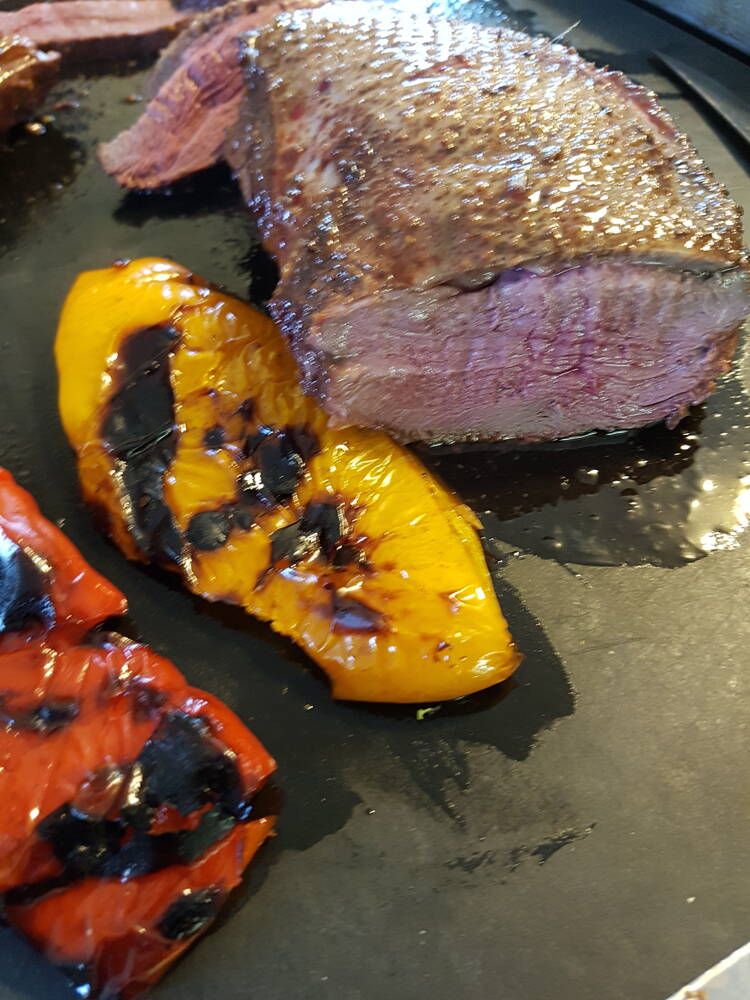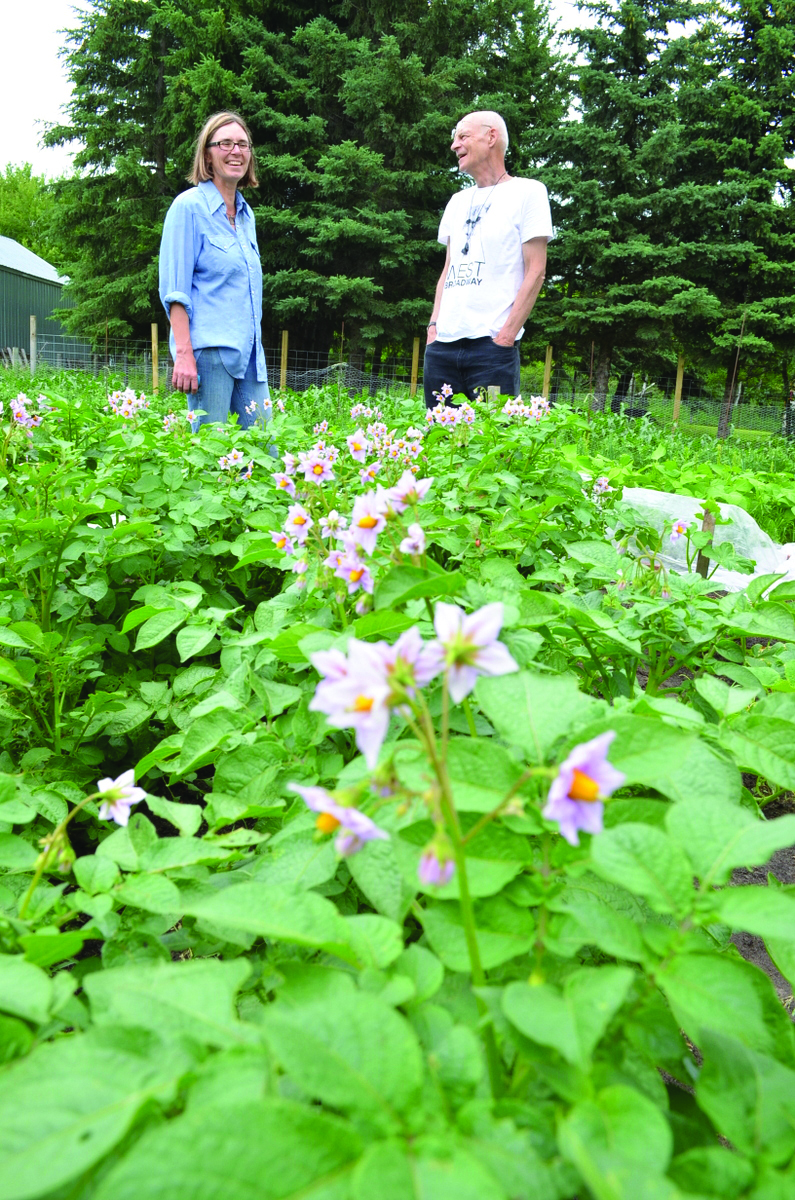Food for the Future project grows larger in its second year, and adds a neighbouring community garden plot tended by three families
Underneath a cloudy sky on a still, humid morning in July, Leah Lees and Rhoda Canning are busy battling potato bugs when a young helper makes a plea for mosquito repellent.
Lees and Canning don’t stop squashing, but there is some laughter as they debate the philosophical contradictions of using skin-applied chemical repellents in an organic garden.
The Food for the Future community garden project is well into its second growing season, and apart from the recent invasion of Colorado potato beetles, the various vegetable crops are coming along nicely on the plot of land next to the town curling rink owned by the Oak Lake Agricultural Society.
Read Also

Giant Canada geese have gone wild in Manitoba
Giant Canada geese are seemingly everywhere and can be fine table fare for local hunters, but 70 years ago, they were borderline extinct.
Paul Chorney, who helps co-ordinate from the Manitoba Alternative Food Research Alliance, which has sponsored the garden project, arrives and Lees gives him a tour and update.
The federally funded alliance is a partnership of 12 different colleges and universities and 50 different community groups promoting sustainable, local and “just” food production.
The Oak Lake garden is a demonstration of the “passion, energy and enthusiasm” of communities and the importances of “local champions” for such initiatives, said Chorney.
“Leah is clearly a champion, and champions are the key, in my view, to small projects like this because they draw people to them and share that enthusiasm,” he said.
The alliance has sponsored about 30 similar rural and urban projects around the province, ranging from small gardens to greenhouses, as well as academic studies and even an effort to create a market for discarded Lake Winnipeg whitefish.
One of its goals is to promote the idea of food justice, a concept that is often misinterpreted as meaning people have a right to food “for free,” he said.
“It’s saying that people have a right to food, but it’s also saying that there should be justice for farmers too in that they should earn a decent income,” said Chorney.
Community projects like the one in Oak Lake are valuable because they provide examples of local empowerment, awareness of food security issues, and educating youth about food production, he added.
Lees and Canning, for their part, are hoping “to work ourselves out of a job.”
“Obviously, we are committed to the project, but we’d like to see it become something that people from the community take hold of and say, ‘Hey, let’s grow more food,’” said Lees.
To that end, they have formed a six-customer Community Supported Agriculture venture to generate funds for a small, stand-alone irrigation system, seed purchases, and cash incentives for the children who help with weeding.
“We’ve lost a few kids, but we’ve also gained some new ones,” she said. The new crew of 10 helpers is quite a bit younger than last year’s, and the garden has gained a new “Grandma” who likes to come and help with the weeding. The plot is larger this year and a separate community garden tended by three local families has been added. However, a bid to add chickens was unsuccessful as some residents feared that might attract coyotes.



















